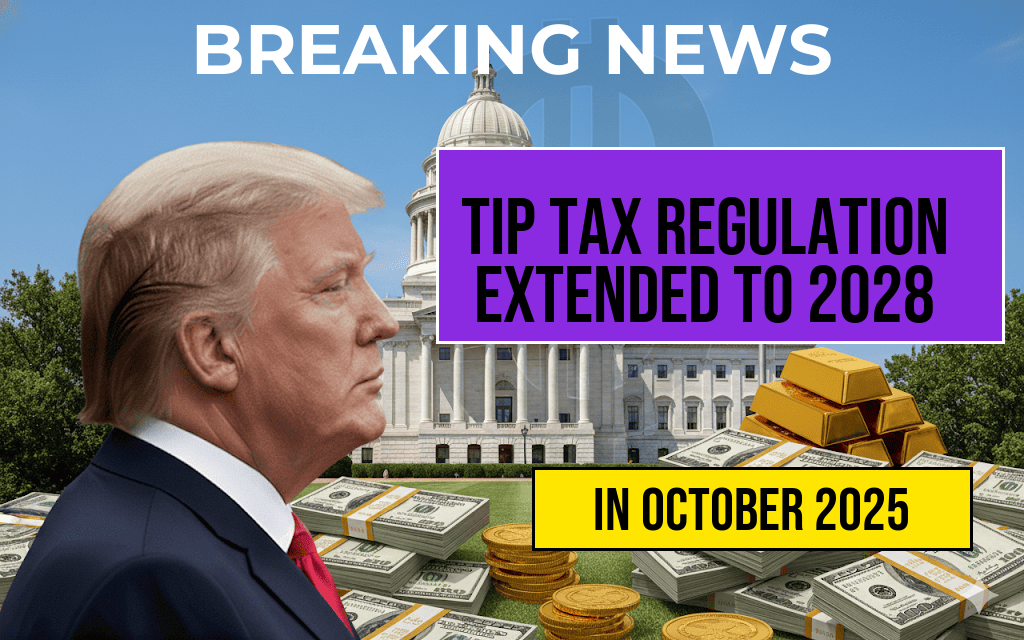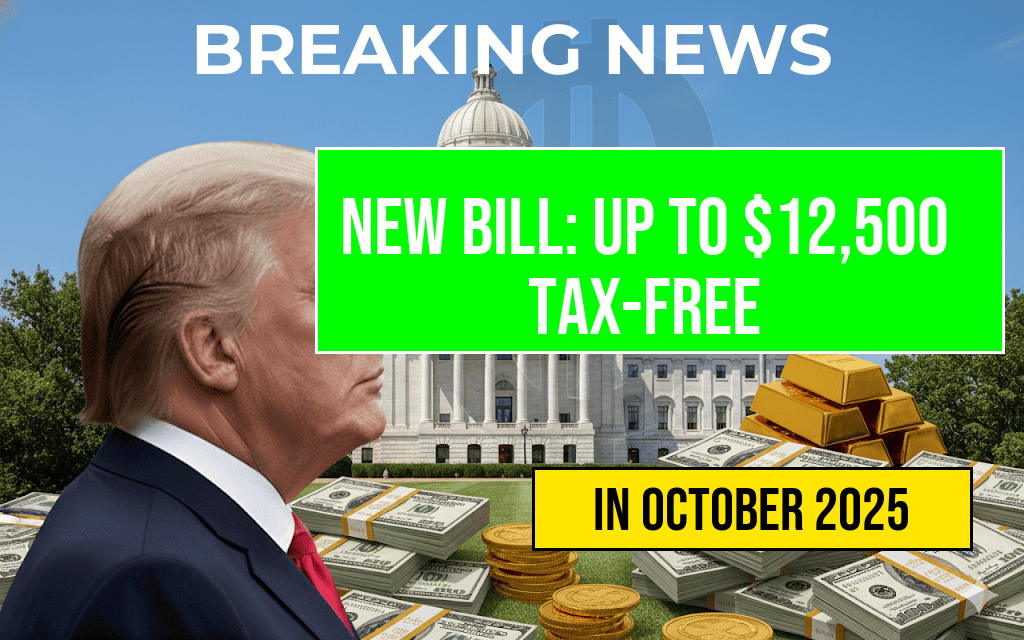The U.S. government has announced an extension of the tax regulation concerning gratuities, allowing individuals to exclude up to $25,000 in annual tips from their taxable income through 2028. This decision, made by the Internal Revenue Service (IRS), aims to support workers in the hospitality and service sectors, where tips play a significant role in overall earnings. By maintaining this threshold, the IRS recognizes the financial challenges many service employees face, particularly in the wake of the COVID-19 pandemic. This regulatory extension is expected to benefit a wide range of workers, from restaurant servers to hairdressers, who rely on tips as a critical source of income.
Understanding the Tax Regulation on Tips
The tax regulation on tips, which was originally established to help employees manage their taxable income, has been a crucial part of the tax code for years. Here are key aspects of this regulation:
- Annual Limit: Workers can exclude up to $25,000 in tips from their taxable income.
- Eligibility: This limit applies to employees within industries where tipping is customary, such as restaurants, bars, and personal services.
- Duration: The regulation has been extended through 2028, allowing for continued financial relief.
Impact on Service Workers
For many service workers, tips comprise a substantial portion of their income. According to the National Restaurant Association, about 70% of restaurant workers rely heavily on tips to meet their financial needs. The decision to extend this tax regulation is expected to have several positive effects:
- Increased Take-Home Pay: By excluding tips from taxable income, workers can retain more of their earnings, providing a much-needed financial cushion.
- Encouragement for Employment: The regulation may promote job retention in the hospitality industry, which has seen significant job losses during the pandemic.
- Stabilization of Income: Regular income from tips can help employees manage their finances more effectively, especially during economic uncertainties.
How to Report Tips Accurately
While the regulation allows workers to exclude tips up to $25,000, it remains essential for employees to report their tips accurately. The IRS requires that all income, including tips, be reported on tax returns. Here are some guidelines for reporting:
- Keep Detailed Records: Workers should maintain a daily log of tips received to ensure accurate reporting.
- Report All Tips: Any tips received over the $25,000 limit must be reported as taxable income.
- Utilize IRS Resources: The IRS provides resources and forms to help workers understand their reporting obligations. More information can be found on the IRS website.
Challenges and Considerations
Despite the benefits of this extended regulation, several challenges remain for service workers:
- Variability of Income: Many workers may still face fluctuations in income due to changes in customer volume and economic conditions.
- Awareness and Understanding: Some workers may not fully understand the implications of this regulation and how to take advantage of it.
- Potential Changes in Industry Standards: As the hospitality industry continues to recover, there may be changes in tipping practices that could affect overall earnings.
The Future of Tip Regulations
As the IRS extends the tip tax regulation through 2028, discussions are likely to continue regarding the future of tipping practices in the service industry. Advocacy groups are calling for clearer guidelines and potential reforms to ensure fair compensation for service workers. The extension of this regulation reflects an understanding of the economic realities faced by many in the service sector and highlights the ongoing need for financial protections.
For further details on the implications of this regulation, you can refer to the Forbes article on tips and taxation and the Wikipedia entry on tipping.
Frequently Asked Questions
What is the new annual limit for reported tips under the extended tax regulation?
The new annual limit for reported tips has been set at $25,000. This limit applies to individuals receiving tips in their employment and is part of the extended tax regulation that will remain in effect through 2028.
How does the extension of the tax regulation affect businesses?
Businesses will need to ensure they comply with the extended regulation by accurately reporting tip income for their employees. This requires proper tracking and documentation of tips received by employees to stay within the $25,000 limit.
Are there any exceptions to the $25,000 annual limit on tips?
Currently, the $25,000 annual limit applies broadly, but specific exceptions may exist based on individual circumstances or local regulations. It’s advisable to consult with a tax professional for personalized guidance.
What should employees do if they exceed the $25,000 limit on tips?
If employees exceed the $25,000 limit on tips, they may need to report the additional income as taxable income on their tax returns. It is important to keep detailed records of all received tips to ensure accurate reporting.
When did the tax regulation on tips first come into effect?
The tax regulation on tips was initially introduced before this extension, but the specific details regarding the $25,000 annual limit have been confirmed as part of the recent updates extending through 2028.






